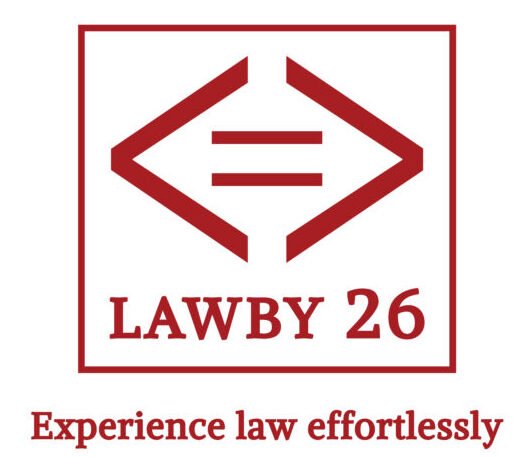Despite India’s economic growth in the past decade, the increasing socio-economic divide has led to magnifying the problem of begging and beggars in India. The issue is amplified when it comes to child begging in India, with its roots in neglect, coercion, cartels and mafias, forcing and exposing an increasing number of children each year to the streets. This cycle has plagued and ruined the lives of children who have forever lost their innocent childhood to slavery and begging. In India, there is no national law dealing with begging, but several States and Union Territories have enacted laws which outright ban and criminalise begging within their territories.
>THE TAMIL NADU PREVENTION OF BEGGING ACT, 1945
The Tamil Nadu Prevention of Begging Act (hereinafter referred to as the ‘Act’) was enacted on 24th June 1945 with the intent to “provide for the prevention of begging for the detention and employment of beggars and their dependents in work-houses or special homes, and for the custody, trial and punishment of beggar offenders in the State of Tamil Nadu”.[1]
Section 2(1) defines ‘begging’ as-
(i) soliciting or receiving alms in a public place, whether under the pretence of singing, dancing, performing tricks or selling articles or otherwise;
(ii) entering on any private premises for the purpose of soliciting or receiving alms;
(iii) exposing or exhibiting, with the object of obtaining or extorting alms, any sore, wound, injury, deformity or disease, whether of himself or any other person or an animal;
(iv) allowing oneself to be used as an exhibit for the purpose of soliciting or receiving alms;
but does not include soliciting or receiving money, food, or gifts for such purposes as prescribed.
In terms of procedure and penalty, the Act makes a clear distinction between those above the age of eighteen and those below the age of eighteen. A medical examiner should examine any person arrested per Section 5 of the Act to attest to his/her age and physical capacity. Suppose it is found that the arrested person has not attained the age of eighteen. In that case, he may be produced before the Juvenile Justice Court with the certificate provided by the medical examiner under Section 6 of the Act. If the Magistrate finds that the person arrested under beggary has not attained the age of eighteen, the Magistrate may pass any order which a Juvenile Preamble (The Tamil Nadu Prevention of Begging Act, 1945)[1]
The Court could have passed under Section 12(1) of the Act. According to Section 12 of the Act, if a person who is under the age of 18 is arrested, s/he shall be produced before a Magistrate within 24 hours of his arrest, and the Magistrate shall send him to Juvenile Court. If the arrested person is found to be under the age of 14 years and has no house or guardians or if s/he has guardians with criminal or drunken habits, then the Court shall pass orders under Section 29(1) of Tamil Nadu Children Act, 1920. [2] If the Court finds out that the person arrested is above the age of 14 but below the age of 18 and is guilty of an offence under Section 3 of the Act, then the Court may order that s/he may be detained in a workhouse provided s/he is physically capable and if not, s/he may be detained in special home if there is one. [3]
INDIAN PENAL CODE, 1860
In order to tackle the growing menace of kidnapping for/and forced begging of children, the Indian Penal Code, 1860, was amended in 1959 to insert Sections 268 and 363A, which criminalise the exploitation of children for begging. Section 363A, in defining the Act of begging and a minor[4], makes it illegal to employ, kidnap or maim a minor for the purposes of begging. Section 268, dealing with public nuisance, can be used to curb begging where begging qualifies as a public nuisance for the purposes of the provision.
JUVENILE JUSTICE (CARE AND PROTECTION) ACT, 2015
Section 76 of the Juvenile Justice Act 2015 provides for the offence of employing a juvenile[5] or child[6] for begging[7]. The Section details that any person who employs or uses any child for the purposes of begging or abets such commission thereof shall be punishable with imprisonment, which may extend to five years, and shall also be liable to a fine of one lakh rupees. In case, for the purposes of begging, the person amputates or maims the child, he/she shall be punishable with rigorous imprisonment for a term not less than seven years which may extend to ten years. He/she shall also be liable to a fine of five lakh rupees.
[1] Section 8, Tamil Nadu Prevention of Begging Act, 1945
[2] Section 12(2), Tamil Nadu Prevention of Begging Act, 1945
[3] Section 12(3), Tamil Nadu Prevention of Begging Act, 1945
[4] For the purposes of this provision, a minor is defined as a person under sixteen years of age in the case of a male; a person under eighteen years of age in the case of a female.
[5] Section 2(35), Juvenile Justice Act, 2015.
[6] Section 2(12), Juvenile Justice Act, 2015.
[7] Section 2(8), Juvenile Justice Act, 2015
THE CHILDREN ACT, 1960
Section 42 of the Children Act, 1960, provides that any person who employs, causes or abets a child[1] for/to the purposes of begging[2] shall be punishable with a term which may extend to one year and/or a fine.
[1] Section 2(e), Children Act, 1960
[2] Section 2(b), Children Act, 1960



